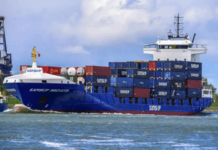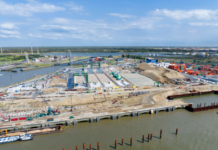Marking a significant investment of approximately US$6.72 million, the inaugural photovoltaic installation stands as a noteworthy stride in Cilsa’s commitment to environmental preservation.
This initiative is poised to have a substantial impact by curbing approximately 2,465 tonnes of CO2 emissions annually, a feat equivalent to the emissions produced by 725 cars covering a distance of 12,000 km each year in urban areas.
As part of Cilsa’s overarching plan to transform the ZAL Port into an energy-independent and environmentally sustainable logistics hub, the next phase involves the installation of solar panels on various warehouses within the ZAL Port. This move is anticipated to secure 100% of the energy requirements for this specific area.
Subsequently, infrastructure will be developed to meet the entire energy demand of ZAL Barcelona. The final stage envisions the installation of solar panels throughout the logistics hub, not only ensuring 100% energy self-sufficiency but also generating green energy for consumption by the Port Community and the Port of Barcelona itself.
According to the president of Port of Barcelona and Cilsa Lluís Salvadó, in the area of photovoltaic energy, the Spanish port is working at full speed to create a photovoltaic production capacity on existing buildings and roofs within the port of between 92 and 100 MW of power and an annual electrical production of between 120 and 150 GWh. Around 10% of the capacity of this first phase (10 MW) is currently in operation. In a second phase, between 150 and 300 MW of additional power (between 190 and 350 GWH of annual electricity production) could be produced in the new developments planned within the port precinct.
Upon the completion of all planned photovoltaic installations at the ZAL Port, Cilsa is set to achieve a total installed capacity of 40MWp. The anticipated outcome is an annual power generation of 50,000 MWh, a quantity equivalent to meeting the yearly energy needs of 41,250 individuals. This impressive capacity translates into providing electricity for entire cities, akin to the size of Vilafranca del Penedès or Igualada throughout the entire year.
Alternatively, it could power substantial neighbourhoods in Barcelona, such as Vila Olímpica or Trinitat Nova. These details were unveiled during the announcement of Cilsa’s photovoltaic energy development plan by Lluís Salvadó, Luis Lázaro, director of Logistics & Retail at MERLIN Properties and Jordi Guerrero, general manager of Cilsa.






